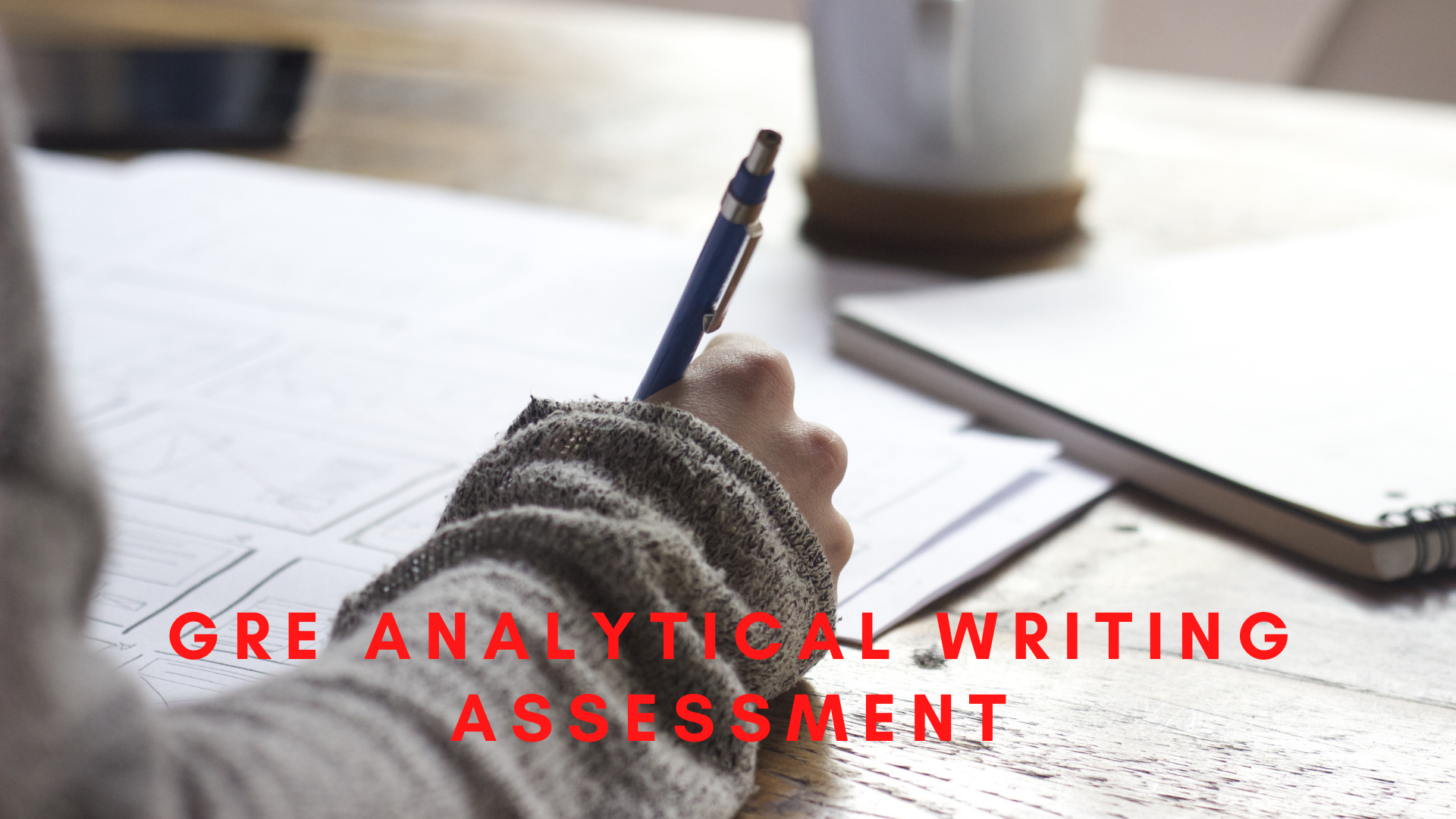When practicing for the GRE, you may find the analytical writing section relatively easy and subjective. This section aims to assess your analytical skills. It tests your ability to recollect constructive ideas and statements, your ability to evaluate arguments, and how you articulate complex issues.
The Analytical Writing Assessment, or AWA, has two 30 minute assignments. They are not to test your content knowledge but your writing and formulation knowledge. These two assignments are categorized as The Argument Task and The Issue Task. Let’s now discuss in detail the importance of AWA and the strategies to ace the assignment.
Importance of the AWA
The importance of the writing section varies according to the courses you are applying for. If you aim for writing-intensive programs, a high score from this section is expected from you to get into a good college. But if you aim for non-writing-intensive programs, you should focus more on the verbal and quantitative ability test section.
In such cases, the AWA does not play a crucial role. Therefore, the time that you need to devote to the AWA depends on the course that you want to apply to. We recommend that you keep essay writing the last topic to study and consider it as a warm-up during the preparation of the other subjects.
Scoring of the Analytical Writing Assessment
The maximum score awarded in AWA is 6 for both sections. A score of 6 signifies a percentile of 99, which implies that you have performed better than 99 percent of the candidates.
A score of 6 is within the 99 percentile.
A score of 5.5 is within the 98 percentile.
A score of 5 is within the 92 percentile.
A score of 4.5 is within the 80 percentile.
A score of 4 is within the 55 percentile.
A score of 3.5 is within the 38 percentile.
A score of 3 is within the 14 percentile.
A score of 2.5 is within the 6 percentile.
A score of 2 is within the 1 percentile.
A score between 4 and 5 is considered a good score.
Studying and preparing for the Analytical Writing Assessment
The first step when preparing for the GRE is to understand the time allocation. You should first decide how much time you need to put into the practice for the Analytical Writing Assessment section. Consider the courses and the universities that you are applying to before you land on the answer to time allocation. It is also advisable for you to be aware of your reading pace before you mark your deadlines.
Spending time on reading and writing essays is essential while preparing for the AWA section. The topics given in the test may vary from technology to humanities. Though the test expects you to write in an arranged form while following the grammar rules, no one expects you to be thorough with the topic’s content.
Test-makers follow the following rules to help you guide through the test:
The test taker must be able to understand the topic and write about it irrespective of his/her field of study.
The test must be assessed on the writing structure that is required by the university rules.
The content may vary among the test takers as they may have different opinions.
That being said, one can practice for the topics from different sample papers available in books and online.
To help aspirants prepare for the test, the GRE Program has published the entire range of topics in a pool from where the topics for the test are selected. You can go through that to explore various topics and content that is expected to get good scores.
We recommend that you visit the website for the pool of topics. You will find the argument topic pool as well as the issue topic pool in there. Do visit the website and try to understand the writing techniques of those articles. But make sure that you do not mug up all the topics and the content. That is an unnecessary waste of your time and brain. Instead, spend that time and energy on practicing for verbal and quant sections.
30-minute Analyse an Issue Task and 30-minute Analyse an Argument Task
Many of the aspirants go hazy when they hear the issue task and argument task. Let us now see what these tasks really are. The definitions given by ETS are reliant on understanding these terms. They have properly explained what is expected in these tasks and how to write on the given topics:
The Issue task presents an opinion on an issue of general interest followed by specific instructions on how to respond to that issue. You are required to evaluate the issue, consider its complexities, and develop an argument with reasons and examples to support your views. The Argument task requires you to evaluate a given argument according to specific instructions. You will need to consider the logical soundness of the argument rather than agree or disagree with the position it presents.
Summary
The AWA section of the GRE is relatively easy, but the student needs to have a clear distinction between language and grammar before they submit their content. We suggest that before you start writing, take the first 5 minutes to arrange the subtopics and content in your brain so that you can smoothly complete your task. This helps in the formulation of sentences as well as in omitting complexities. Moreover, it also enhances your readability score and helps you get a decent score. At Miles Smart Tutoring, we provide tutoring services for all the major graduate school exams such as GRE, GMAT, MCAT, and LSAT. For counseling, guidance, and more information about our tutoring services,
Also read about:
The Best Lightning Cable You Can Buy for Your iPhone
Best Uber Clone APP Development Company in Chandigarh Omninos
5 best camping destination in Mumbai
















